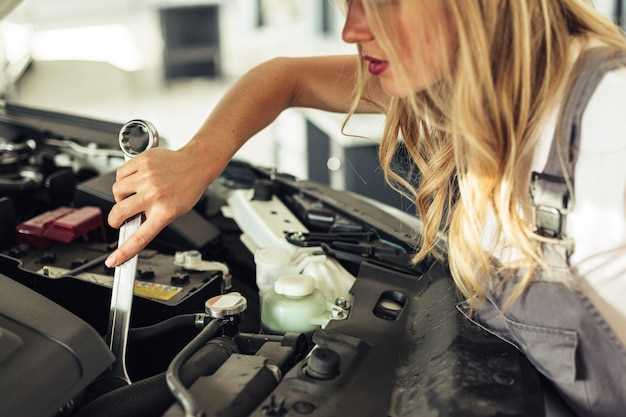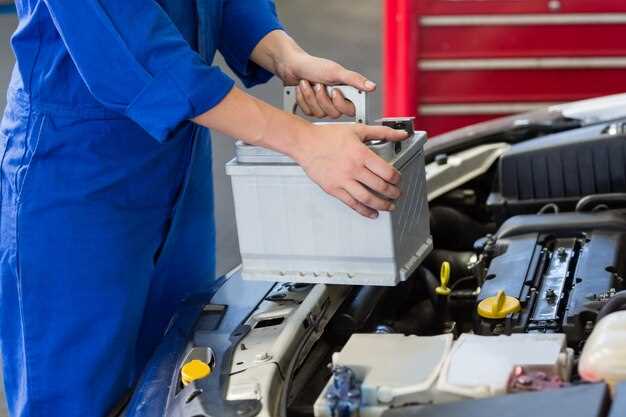
When it comes to maintaining your Ford vehicle, one of the most critical components to consider is the battery. Regular check of your battery’s condition can significantly impact your vehicle’s performance and longevity. Whether you own a Ford truck, SUV, or sedan, understanding the key aspects of battery maintenance is essential for avoiding unexpected breakdowns and costly repairs.
Ford vehicles are known for their reliability, but even the most robust machines require proper care, especially when it comes to battery parts. Over time, batteries can lose their charge capacity, corrode, or develop faults that necessitate replacement. By learning how to effectively monitor and maintain your battery, you can extend its life and ensure that your vehicle operates smoothly.
In this article, we will explore practical tips on how to maintain and replace the battery of your Ford vehicle, as well as the benefits of keeping your battery in optimal condition. From checking connections to understanding when it’s time for a replacement, these insights will help you take proactive steps in battery care, ultimately leading to better performance and increased reliability of your Ford.
How to Properly Maintain Your Ford Battery for Longevity

To ensure the longevity of your Ford battery, regular maintenance is essential. Start by checking the battery terminals for corrosion. Corroded terminals can impede electrical flow and affect performance. Clean the terminals with a mixture of baking soda and water to remove any buildup.
Next, check the battery’s electrolyte levels if your Ford battery is a type that requires maintenance. Ensure the fluid covers the lead plates. If the levels are low, top them up with distilled water to keep the battery functioning optimally.
Additionally, inspect the battery case for any cracks or leaks. A damaged case can lead to battery failure and potential hazards. If you notice any irregularities, consider replacing the battery to avoid further complications.
Temperature extremes can affect battery performance. If possible, park your Ford in a garage or shaded area during extreme weather conditions. This reduces stress on the battery and enhances its overall lifespan.
Lastly, perform regular load tests and voltage checks, especially if your Ford battery is over three years old. These tests help assess the battery’s health and determine if replacement is needed. Taking proactive steps in maintaining your battery can save you from unexpected breakdowns and ensure reliable performance on the road.
Signs That Indicate It’s Time to Replace Your Ford Battery

A reliable battery is crucial for the optimal performance of your Ford vehicle. Recognizing the signs that indicate a potential battery failure can save you from unexpected breakdowns and costly repairs. Here are some common indicators that it’s time to consider replacing your Ford battery:
1. Slow Engine Crank: If you notice that your engine takes longer to turn over or if it sounds sluggish when starting, this could be a sign that your battery is losing power. This issue often arises when the battery’s internal components begin to wear out.
2. Dashboard Warning Light: Most modern Ford models come equipped with a battery warning light on the dashboard. If this light illuminates, it signifies an issue with your battery or electrical system. Ignoring this warning can lead to more severe problems.
3. Corrosion or Leak: Inspecting your battery for corrosion around the terminals is essential. A build-up of white, ashy residue can indicate a leaking battery, which compromises its performance. If you find any residue, it’s a sign that your battery parts may need replacement.
4. Age of the Battery: The average lifespan of a car battery is typically around three to five years. If your Ford battery is approaching this age limit, it’s wise to have it tested regularly and be prepared for replacement.
5. Electrical Issues: If you experience flickering lights, malfunctioning electrical components, or a weak radio signal, these issues could stem from a failing battery. The battery is responsible for powering the entire electrical system, and any irregularities can indicate it’s time for a new one.
6. Smell of Sulfur: A rotten egg smell near your battery could indicate a serious issue, such as a leak or overcharging. This can lead to battery failure and should be addressed immediately by a professional.
By paying attention to these signs, you can ensure your Ford battery operates efficiently and avoid potential inconveniences. Regular maintenance and timely replacement of battery parts will enhance your vehicle’s performance and reliability.
Benefits of Using Genuine Ford Parts for Battery Replacement
When it comes to battery replacement, choosing genuine Ford parts offers several significant advantages. Authentic components are specifically designed to fit your vehicle perfectly, ensuring optimal performance and compatibility. Using the correct battery parts helps avoid issues that may arise from using aftermarket alternatives, which may not meet the same quality standards.
One of the primary benefits of using genuine Ford battery parts is reliability. These components undergo rigorous testing and quality control processes, ensuring that they will perform as expected under various conditions. This reliability reduces the likelihood of unexpected failures, giving drivers peace of mind on the road.
Another advantage is the assurance of longevity. Genuine Ford batteries are engineered to meet the specific power requirements of your vehicle, which can extend the life of both the battery and the electronic systems in your car. This means fewer replacements and less frequent checks of the battery system, contributing to overall vehicle longevity.
Moreover, using genuine parts can help maintain the vehicle’s warranty. Many warranties stipulate that only manufacturer-approved parts should be used during maintenance and repair. Using authentic Ford battery components ensures compliance with these terms, safeguarding the warranty against potential future claims related to electrical issues caused by substandard parts.
Lastly, sourcing your battery and related parts from Ford can enhance resale value. Prospective buyers often prefer vehicles that have been maintained with genuine parts, as this reflects a commitment to quality and care. This can translate into a better resale price when you decide to sell or trade in your vehicle. In summary, opting for genuine Ford parts for battery replacement is a wise investment in your vehicle’s performance, longevity, and value.


